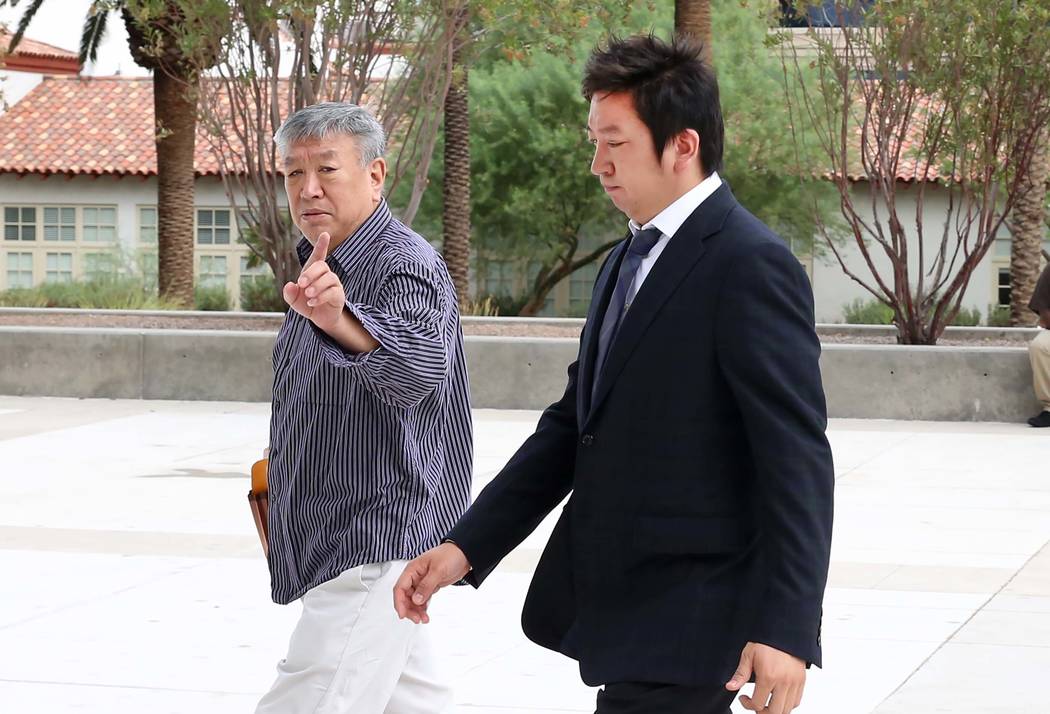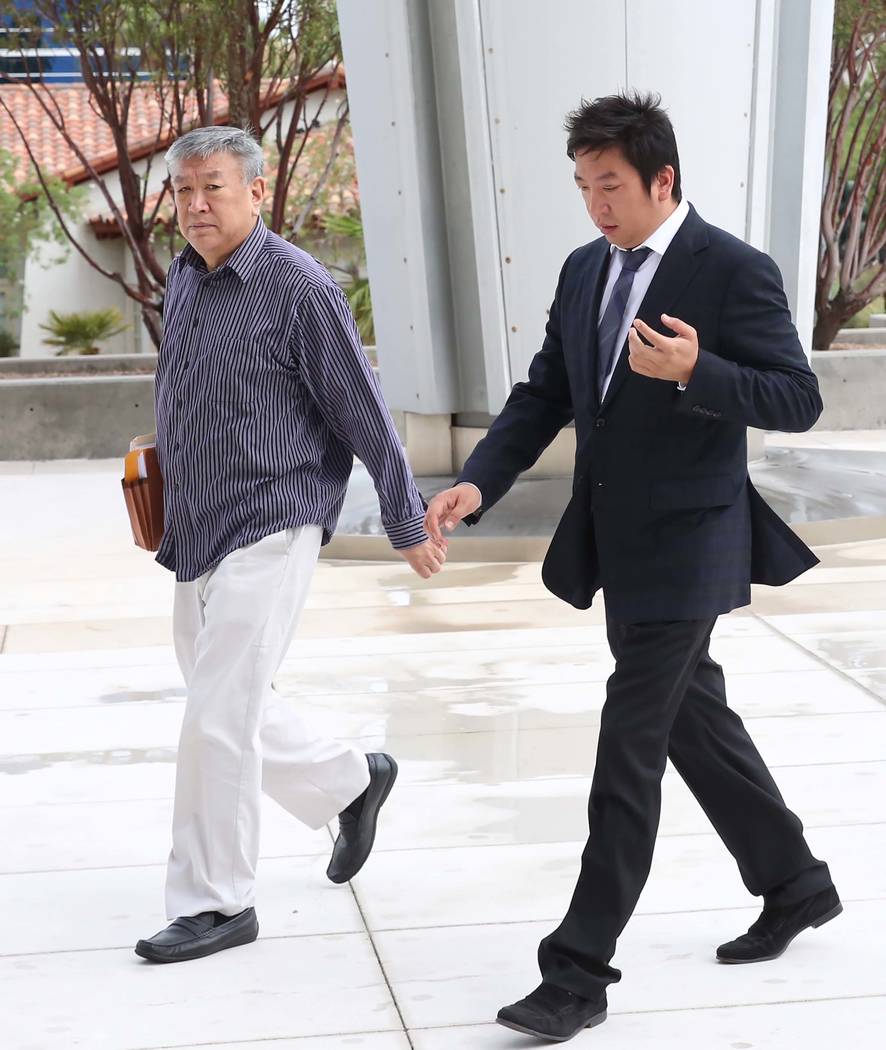Las Vegas marijuana defendant acquitted, still on the lam
Bing Han was nervous.
His lawyer had phoned him around 1:30 p.m. Tuesday to tell him to return to federal court because the jury had reached a verdict in the marijuana trial against Han and his father, Jianguo Han, who both are Chinese citizens.
The nerves were predictable. Han, 37, faced several years in prison if convicted of charges that he helped run a large-scale marijuana growth operation that comprised over 900 plants in two Las Vegas grow houses. What was not anticipated was what Han did next.
He did not return.
The lawyers waited in courtroom 6A for over an hour, speculating as to Han’s whereabouts while the minute hand circled the gold cut-out Roman numeral clock on the wall. Han didn’t answer repeated phone calls from his attorney, Gabriel Grasso. He didn’t come back with his father, who returned at about quarter-past two.
And he didn’t return to hear the verdict: Not guilty.
Bing Han was acquitted of all charges, but he still was on the lam as of late-afternoon Tuesday. His father was convicted of both counts, and remanded to federal custody immediately after the conviction. U.S. District Judge James Mahan ordered the senior Han’s detention based largely on concerns associated with the son’s absence.
The father told lawyers upon arrival that he had no idea where his son went.
“We weren’t together,” Jianguo Han, 66, said through a translator.
Closing Arguments
The jury took less than two hours to convict the father of two drug manufacturing counts for his role in operating what a federal prosecutor described as “sophisticated, well-developed marijuana factories.”
Assistant U.S. Attorney Robert Knief acknowledged “the elephant in the room” — Nevada’s recent legalization of recreational marijuana sales — during his closing argument Tuesday morning.
“It’s marijuana,” he said. He paused, giving silent acknowledgment to the new law. Then, he said: “It’s a lot of marijuana. We’re not talking about a couple of college kids.”
Knief said the Hans’ grow houses were so extreme that the men had dug underground and hotwired the power box — allowing them to steal electricity straight from the ground to meet power needs that far exceeded residential usage. The strategy kept costs down and prevented power usage spikes that would have been viewed as a red flag to law enforcement.
The jury apparently was swayed by Grasso’s closing argument, during which he blasted the government for failing to perform laboratory tests in the case. Prosecutors did not produce DNA or fingerprint evidence from the grow houses and they did not test the hundreds of plants for THC, the chemical compound in cannabis.
“It’s sort of like arrogance — the government believes it can convict an individual like Bing Han with the word of a police officer,” Grasso said. “Were they marijuana plants? Were they plants in the backyard?”
Grasso acknowledged that it was “more likely than not” the plants were marijuana, but asked jurors to focus instead on the government’s burden of proof.
It was not clear Tuesday whether the judge had issued a contempt of court warrant against Bing Han for his failure to appear.
Contact Jenny Wilson at jenwilson@reviewjournal.com or 702-384-8710. Follow @jennydwilson on Twitter.
























